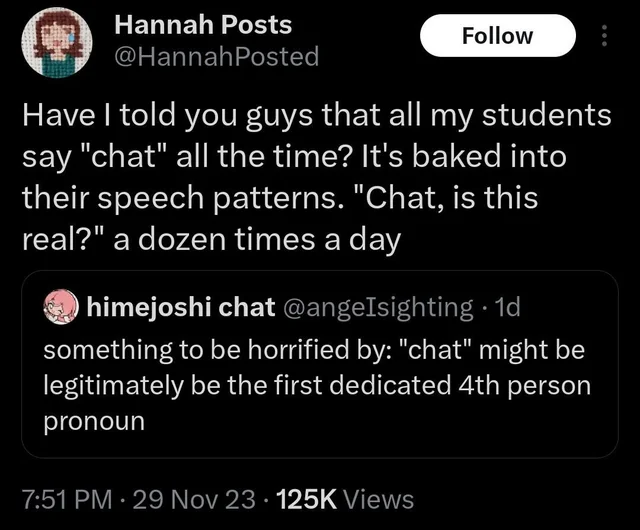this post was submitted on 21 Dec 2023
775 points (95.6% liked)
People Twitter
5466 readers
1087 users here now
People tweeting stuff. We allow tweets from anyone.
RULES:
- Mark NSFW content.
- No doxxing people.
- Must be a pic of the tweet or similar. No direct links to the tweet.
- No bullying or international politcs
- Be excellent to each other.
- Provide an archived link to the tweet (or similar) being shown if it's a major figure or a politician.
founded 2 years ago
MODERATORS
you are viewing a single comment's thread
view the rest of the comments
view the rest of the comments

Here's how I see it:
The English used today is very similar grammatically to the language used 200 years ago, so despite the Wild West days of the US, I think education has done a pretty good job of keeping the language stable. We obviously get new phrases and idioms as culture evolves, but grammar has remained pretty consistent
Here are the historical major events
Then look at English from the 1700s to today, over ~300 years, we've had very few changes in grammar. I guess thee and thou finally fell out of favor, but there's really not many changes, and that's about as long as the period between any of those major events.
"As codified" by who?
Grammar text books.
And who wrote those?
Professors.
And who/what gives them the authority to decide which is the "proper" dialect of a language?